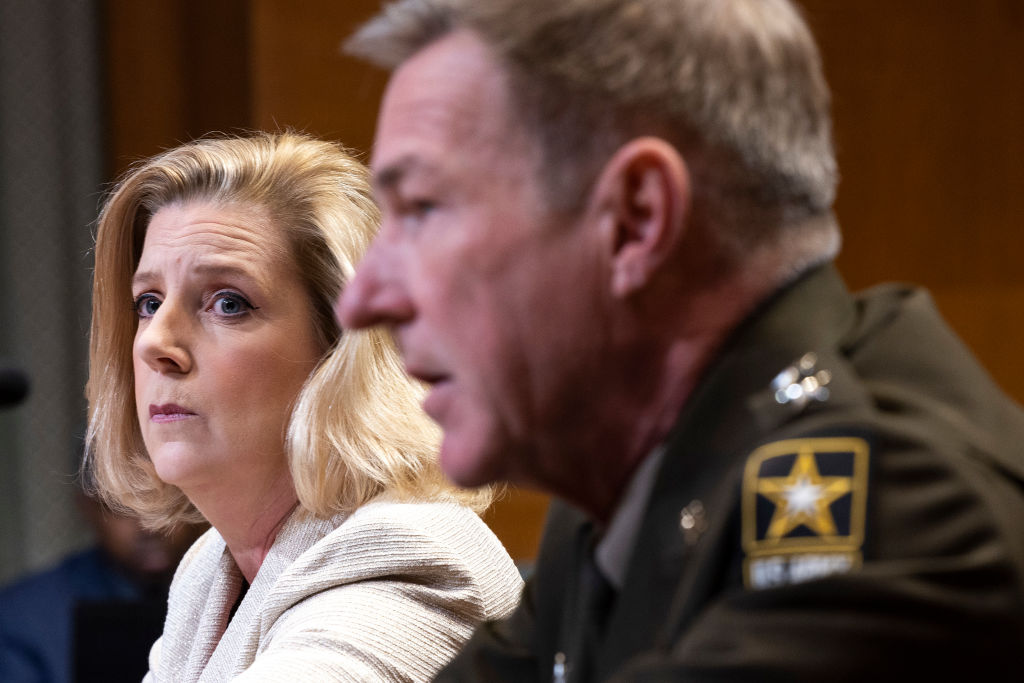Now what?
Rebuilding America’s Military

How to re-establish trust in America's armed forces.
The United States faces a military recruitment crisis that is so severe that analysts are questioning the effectiveness of an all-volunteer force. A smaller pool of potential recruits, a decline in patriotism, and a loss of institutional trust in the military have resulted in missed recruitment goals for the armed services. While it is a historical myth that there was ever an easy time to recruit, the enlistment numbers across the military services are alarming.
To address the recruitment crisis, military recruiting stations must change how they operate. Rather than functioning solely as entities tasked with enlisting individuals, these stations should become local civic organizations with a mission to foster patriotism in their communities and build partnerships with families and local volunteer associations. Recruiting stations can play a pivotal role in revitalizing interest in military service by strengthening community bonds, encouraging patriotism, and making enlistment in the service an appealing and commendable path for our nation’s youth.
The pool of eligible military recruits continues to shrink, a long-term trend that accelerated during the COVID-19 pandemic. According to the Department of Defense, only 23 percent of Americans aged 17 to 24 are eligible to join the military without a waiver, which is down from 29 percent just a decade ago. During the pandemic, test scores fell for high school students, including scores on the ASVAB. High rates of obesity, mental health issues, and drug use contribute to a reduced pool. Social isolation caused by the pandemic only made these trends worse.
Only 9 percent of youth aged 16-21 would consider military service, down from 13 percent prior to the pandemic. The smaller pool of aspiring soldiers is unsurprising considering patriotism is also at a historic low. A recent Wall Street Journal poll reported that only 38 percent of those surveyed said patriotism was important, down from 70 percent when the question was first asked in 1998. While patriotism is often overhyped as a reason for enlisting, studies show it certainly plays a role. An all-volunteer force needs motivation beyond material incentives to fight and possibly die for their country.
Faith in the military has fallen since post-9/11 highs. While public confidence in most public intuitions has fallen over the years, up until recently the military still enjoyed a high degree of trust. A 2022 survey by the Reagan Institute found that 70 percent of the public had a “great deal” of trust in the military; today, only 45 percent of the public feels that way. Political and cultural polarization that has plagued other institutions has finally reached the military, with 62 percent of Americans saying military leadership is overly politicized. General Milley’s testimony about understanding “white rage” did not promote the sense that the military is immune from divisive racial politics. Combine these challenges with headlines about bad housing, sexual assault, and extremism in the ranks and it is not hard to see why the military is suffering a credibility crisis.
To turn this crisis into an opportunity, veterans organizations and military recruitment stations need to coordinate with each other on community events and educate the public about military service. Veterans are a living embodiment of our shared history and can be a unifying force in an atomized society. The media and society have embraced victimhood narratives for veterans, but vets tend to excel in their post-service careers. By integrating veterans and recruiters, military service can be portrayed in a more realistic and favorable light. Recruiters and vets should be present at fundraisers, community BBQs, memorial services, and other events. If there is a lack of trust between local veterans and active-duty personnel, it is incumbent upon the recruiters to repair that trust. Who would trust an outsider encouraging you to join the military if your own local veterans are discouraging service? This connection is even more important considering the family-to-military pipeline may finally be running out.
Recruiters must be engaged in their communities and have the trust of families. A RAND study found, “The importance of family is a recurring feature in the narratives of soldiers. Families played a critical role in prompting or helping soldiers to enlist in the Army.” Through engagement with local civic organizations, churches, and other volunteer groups, military recruiters can reach the mothers, fathers, and extended family members who have influence over future recruits. Considering only seven percent of the population has served in the military, most of the public gets their understanding of uniformed service from television. Recruiters must reach families directly in the communities where they are stationed, which means being a local presence for years, not just one-off events on major holidays. Being an active member of the community is not easy, but it means knowing the organizers of civic organizations, clergy, and other trusted local institutions.
The federal government should allow for the creation of volunteer auxiliary recruiters. While these individuals would not be government personnel, they would volunteer in the communities they live in, while being in constant contact with actual recruiters. These volunteers would stay up to date on the latest in military pay and benefits while connecting young Americans interested in the military with service personnel. Volunteer auxiliaries could supplement recruiters as trusted voices in the community, thus expanding the recruiter’s local network.
Recruiters and their auxiliary volunteers should also spearhead local events. Through workshops, seminars, and public events, these civic military recruiting stations could facilitate discussions on the rights and responsibilities of citizenship, democratic values, and the importance of national defense. By fostering a sense of belonging and civic pride, these initiatives can instill a desire to serve one’s country and contribute to its well-being.
Recruiters could hold “National Night Out” events that many police departments hold. These events vary across the country but often involve music, food, and entertainment for children. National Night Out humanizes police officers, educates the public about crime prevention, and increases support for local law enforcement. A Military Service Day could feature physical and mental competition for teenagers, information booths for parents about military life, and active-duty personnel describing their day-to-day jobs in the military. Service personnel onsite would feature a variety of specialties, from the Army Ranger to the Navy cryptologist and everything in between. Families need to hear stories directly from service members about how enlisting can be a life-changing decision for the better.
Improved community connections will address underlying social fractures happening across the country. The military unites individuals from various socio-economic backgrounds, aligning with Gen Z’s quest for values-driven organizations. Given the epidemic in depression and anxiety among our nation’s youth, the military can offer a sense of purpose, which is known to improve mental health. It cannot be assumed that most Americans understand the sense of belonging and purpose military life offers. Trusted recruiters and local volunteers must be positioned to explain these benefits to young Americans who want to have positive impact in this world.
The American Mind presents a range of perspectives. Views are writers’ own and do not necessarily represent those of The Claremont Institute.
The American Mind is a publication of the Claremont Institute, a non-profit 501(c)(3) organization, dedicated to restoring the principles of the American Founding to their rightful, preeminent authority in our national life. Interested in supporting our work? Gifts to the Claremont Institute are tax-deductible.
The U.S. military can work with the private sector to immunize efficiently.
An address delivered February 10, 2021.
With a recruiting shortfall of 25%, the U.S. Army’s total force will be undermanned by 15,000 soldiers. Leadership needs to be held accountable.
Five lessons U.S. military public affairs should learn from IDF’s information fighters.





